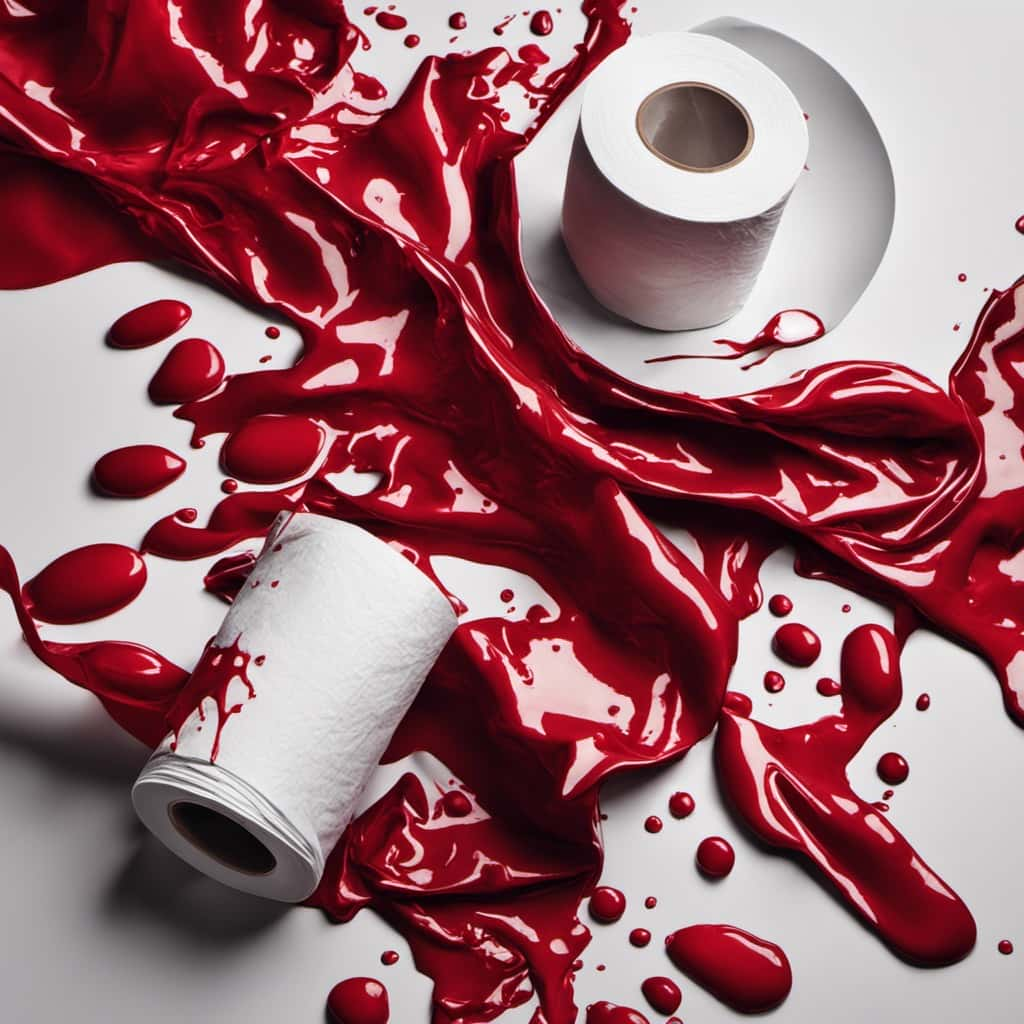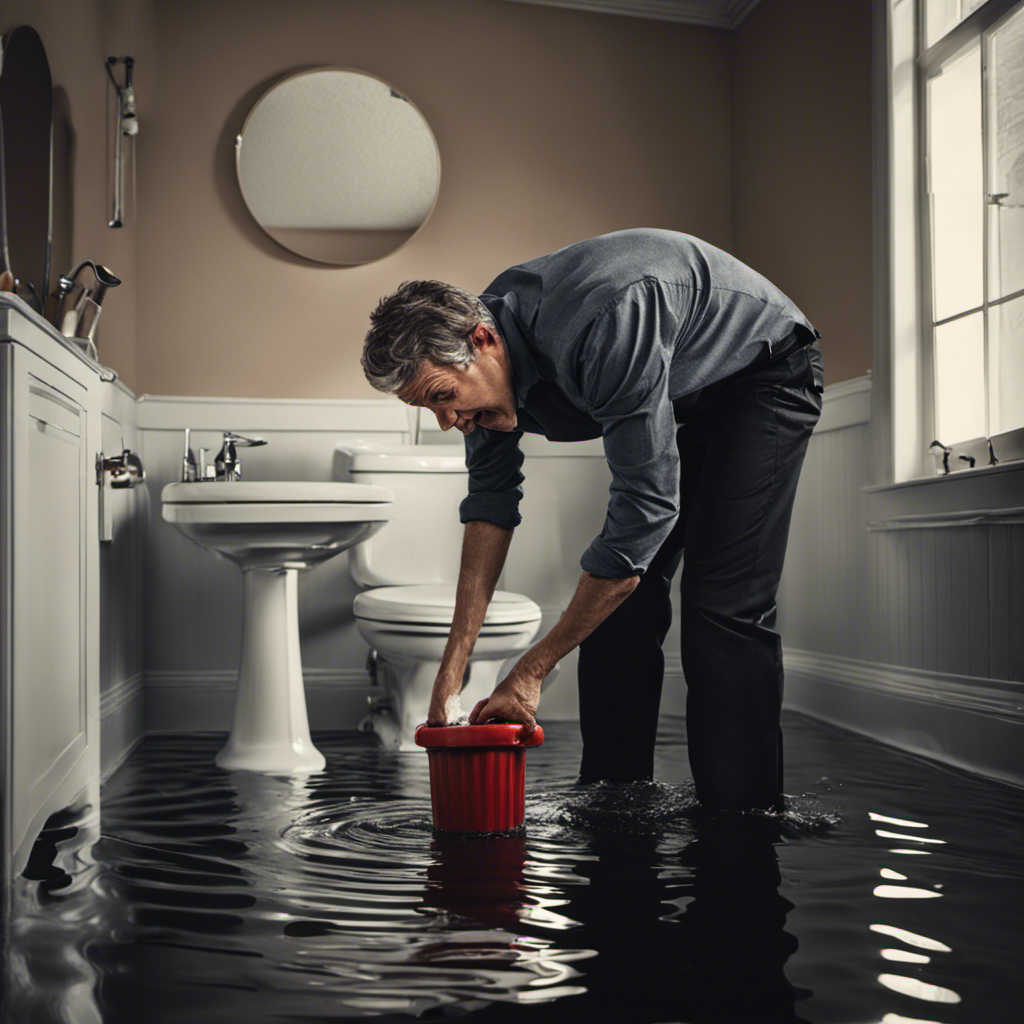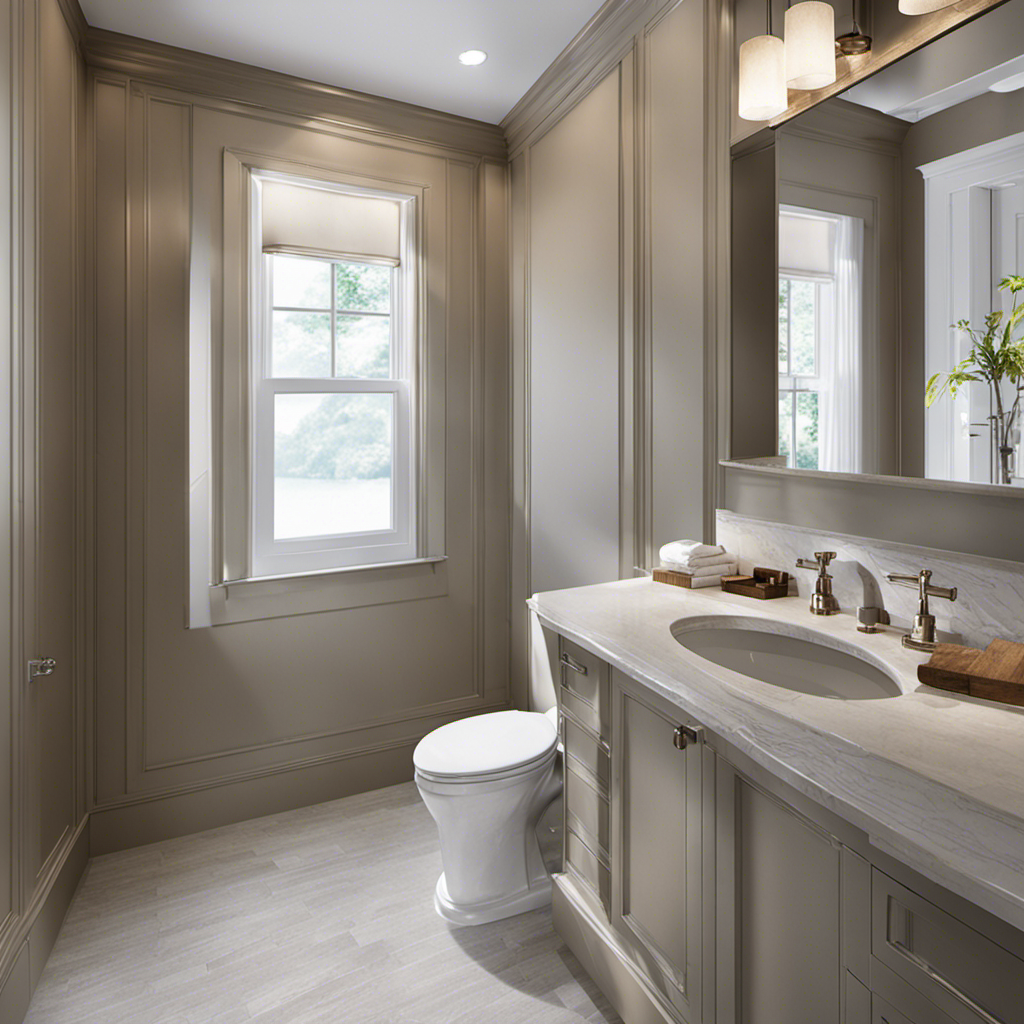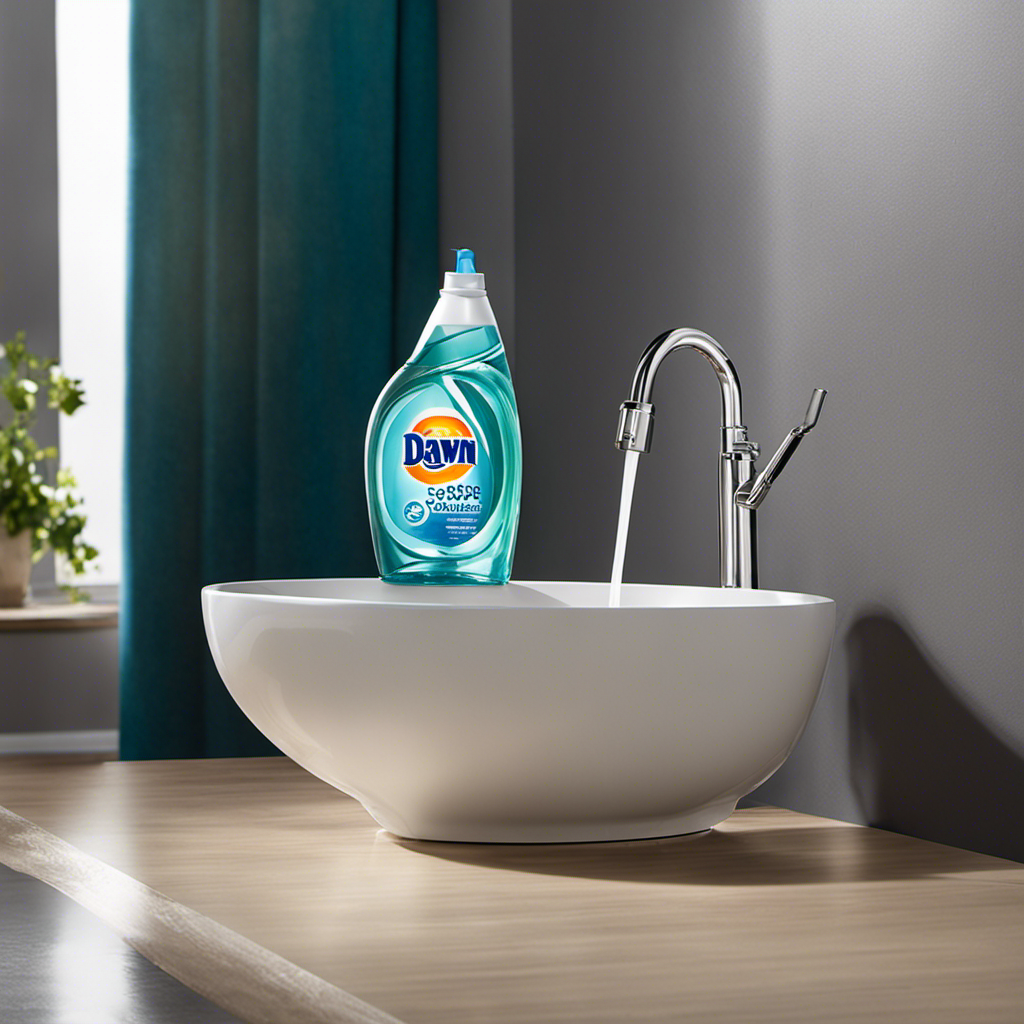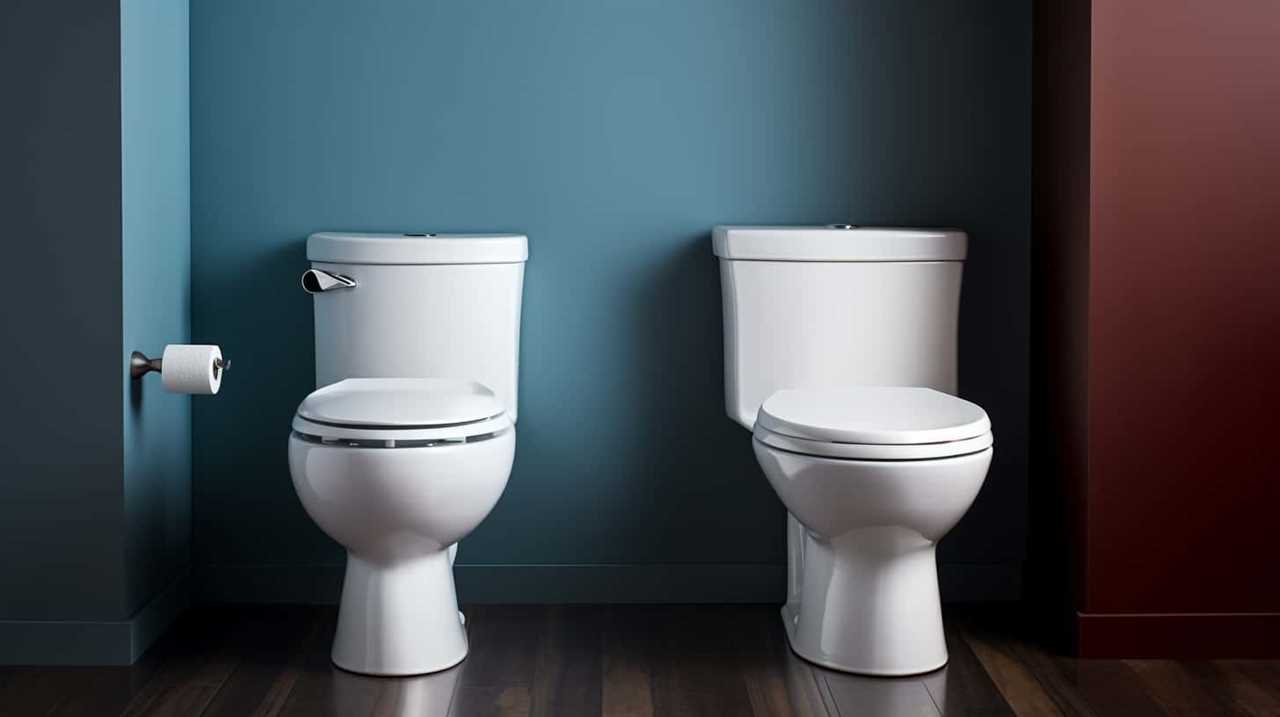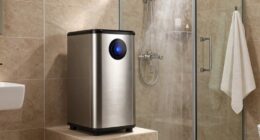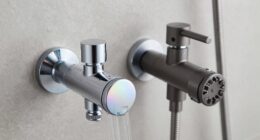Were you aware that annually, countless so-called flushable wipes are disposed of in toilets, leading to significant plumbing problems and blockages?
In this article, we’ll explore the question: will one flushable wipe clog a toilet?
We’ll delve into the composition of these wipes, examine manufacturers’ claims, and discuss the potential risks of using just one wipe.
Additionally, we’ll provide tips on proper disposal and prevention of clogs.

Get ready to master the knowledge on this pressing issue.
Key Takeaways
- Flushable wipes do not dissolve as rapidly as toilet paper, leading to clogs and blockages in pipes.
- The fibers in flushable wipes can cause maintenance issues and costly repairs in plumbing systems.
- Claims of flushable wipes being biodegradable can be misleading, as they may not break down as quickly as advertised.
- Proper disposal and prevention of clogs can help maintain a functioning plumbing system and prevent costly repairs.
What Are Flushable Wipes
Flushable wipes, often marketed as a convenient alternative to toilet paper, are designed to be disposed of by flushing them down the toilet. However, when considering alternatives to flushable wipes, it’s important to question whether they’re truly safe for septic systems.
While these wipes may seem harmless, they can actually cause significant damage to septic systems. Unlike toilet paper, which is specifically formulated to break down easily in water, flushable wipes don’t dissolve as rapidly. This can lead to clogs and blockages in the pipes, resulting in costly repairs.
Additionally, the fibers in flushable wipes can accumulate, creating a dense mass that can obstruct the flow of wastewater. It’s crucial to understand the potential risks associated with flushable wipes before using them as a toilet paper substitute.

Now, let’s delve into the composition of flushable wipes and explore why they pose such a threat to our plumbing systems.
The Composition of Flushable Wipes
When considering the composition of flushable wipes, it’s important to understand how they break down in the plumbing system. These wipes are typically made of a combination of natural and synthetic fibers, which allow them to disintegrate more easily than non-flushable wipes.
However, despite being labeled as flushable, they can still have an impact on the plumbing system, as they can accumulate and cause blockages over time.
Additionally, there are growing environmental concerns surrounding the use of flushable wipes, as they can contribute to clogs in sewage systems and have a negative impact on aquatic ecosystems.
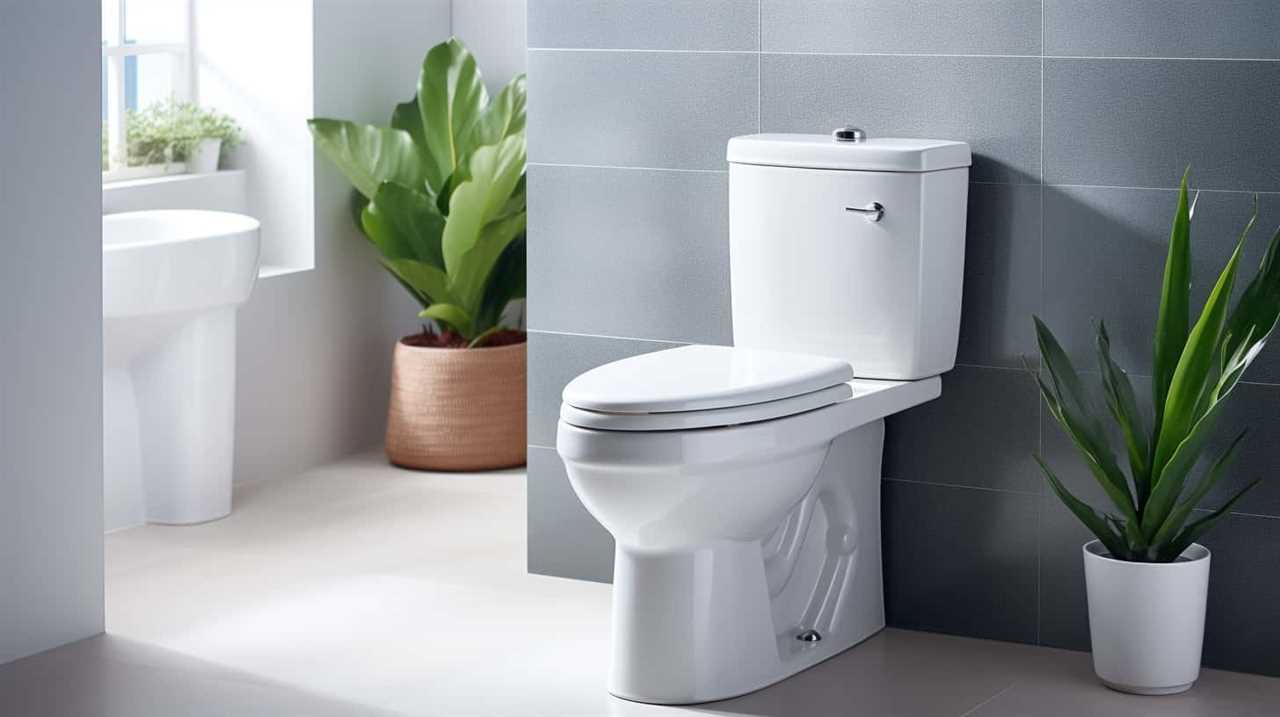
Flushable Wipe Breakdown
We discovered that flushable wipes are composed of various materials that can potentially lead to clogged toilets. These wipes are typically made from a combination of natural and synthetic fibers, along with binders, preservatives, and moisturizing agents. While the exact composition may vary between brands, the table below provides a general breakdown of the materials commonly found in flushable wipes:
| Material | Description |
|---|---|
| Natural fibers | Such as cotton or rayon, provide strength and absorbency |
| Synthetic fibers | Such as polyester or polypropylene, add durability |
| Binders | Like polyvinyl alcohol or latex, help hold the wipe together |
| Preservatives | Prevent microbial growth and maintain freshness |
| Moisturizing agents | Such as glycerin or aloe vera, provide a soothing effect |
It is important to note that while these materials may be designed to break down when flushed, there are potential risks involved. Now, let’s explore the impact of flushable wipes on plumbing systems.
Impact on Plumbing
As we continue our discussion on the impact of flushable wipes on plumbing systems, it’s important to consider the composition of these wipes and their potential effects.
Flushable wipes are typically made of a combination of synthetic fibers, such as polyester or polypropylene, and natural fibers, such as wood pulp or cotton. These fibers are held together by binders, such as latex or polyvinyl alcohol, which give the wipes their strength and durability.
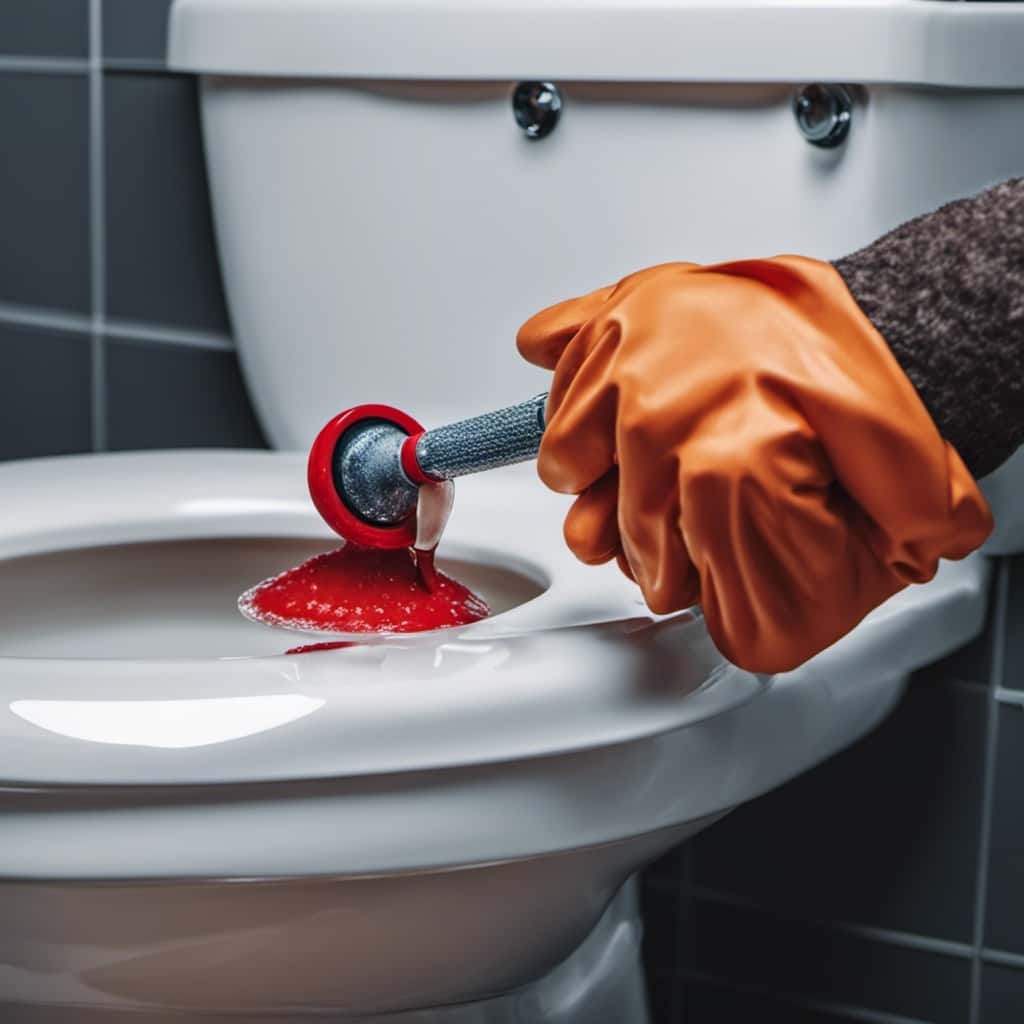
While these wipes are designed to break down when flushed, they can still pose a risk to toilet maintenance and cause plumbing issues. The fibers in flushable wipes can tangle and accumulate with other debris in the pipes, leading to clogs and blockages.
It’s important to exercise caution and only flush toilet paper to prevent such problems.
Environmental Concerns
Continuing our examination of the impact of flushable wipes on plumbing systems, let’s delve into the environmental concerns surrounding their composition. Flushable wipes are often marketed as convenient alternatives to toilet paper, but their composition raises significant environmental issues. Here are three key points to consider:
- Biodegradable alternatives: While some flushable wipes claim to be biodegradable, they may not break down as quickly as advertised. This can lead to clogs in pipes and sewer systems, as well as harm to aquatic life if they end up in water bodies.
- Impact on wastewater treatment: Flushable wipes can cause problems in wastewater treatment plants. These facilities aren’t designed to handle the size and durability of wipes, resulting in increased maintenance costs and potential equipment failures.
- Strain on the environment: The production and disposal of flushable wipes contribute to the overall environmental burden. From the extraction of raw materials to the energy-intensive manufacturing processes, flushable wipes have a negative impact on natural resources and contribute to greenhouse gas emissions.
It is crucial to consider these environmental concerns when evaluating the use of flushable wipes and explore more sustainable alternatives to minimize their impact.
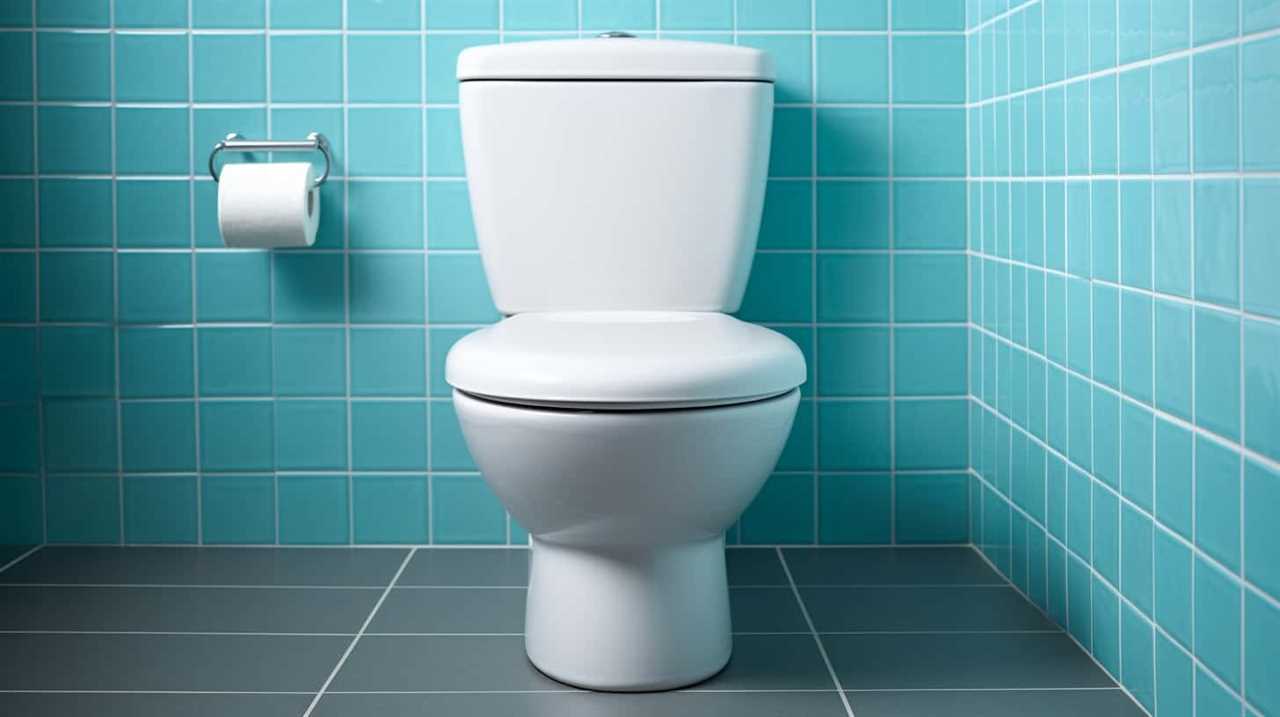
The Claims of Manufacturers
Manufacturers of flushable wipes often make claims about their products that can be misleading. They may advertise their wipes as safe to flush, but in reality, these wipes can cause serious issues in plumbing systems.
One wipe may not clog a toilet immediately, but over time, the accumulation of these wipes can lead to blockages and damage, resulting in costly repairs.
Manufacturer’s Misleading Marketing
While some may argue that flushable wipes are harmless, it’s important to consider the claims made by manufacturers regarding their products’ compatibility with toilets. Misleading advertising by manufacturers can often lead to consumer confusion and a lack of awareness about the potential risks associated with using flushable wipes. Here are three key points to consider:
- Manufacturers often label their wipes as ‘flushable’ or ‘septic-safe,’ giving consumers a false sense of security. However, these claims aren’t regulated and can be misleading.
- Many flushable wipes don’t break down as easily as toilet paper, leading to potential clogs in the plumbing system. This can result in expensive repairs and inconvenience for homeowners.
- Despite claims of being biodegradable, flushable wipes can take a long time to break down in wastewater treatment systems, leading to environmental concerns.
Understanding the misleading marketing tactics employed by manufacturers is crucial for consumer awareness and making informed decisions about the use of flushable wipes. Now, let’s delve into the consequences of toilet clogs and damage.
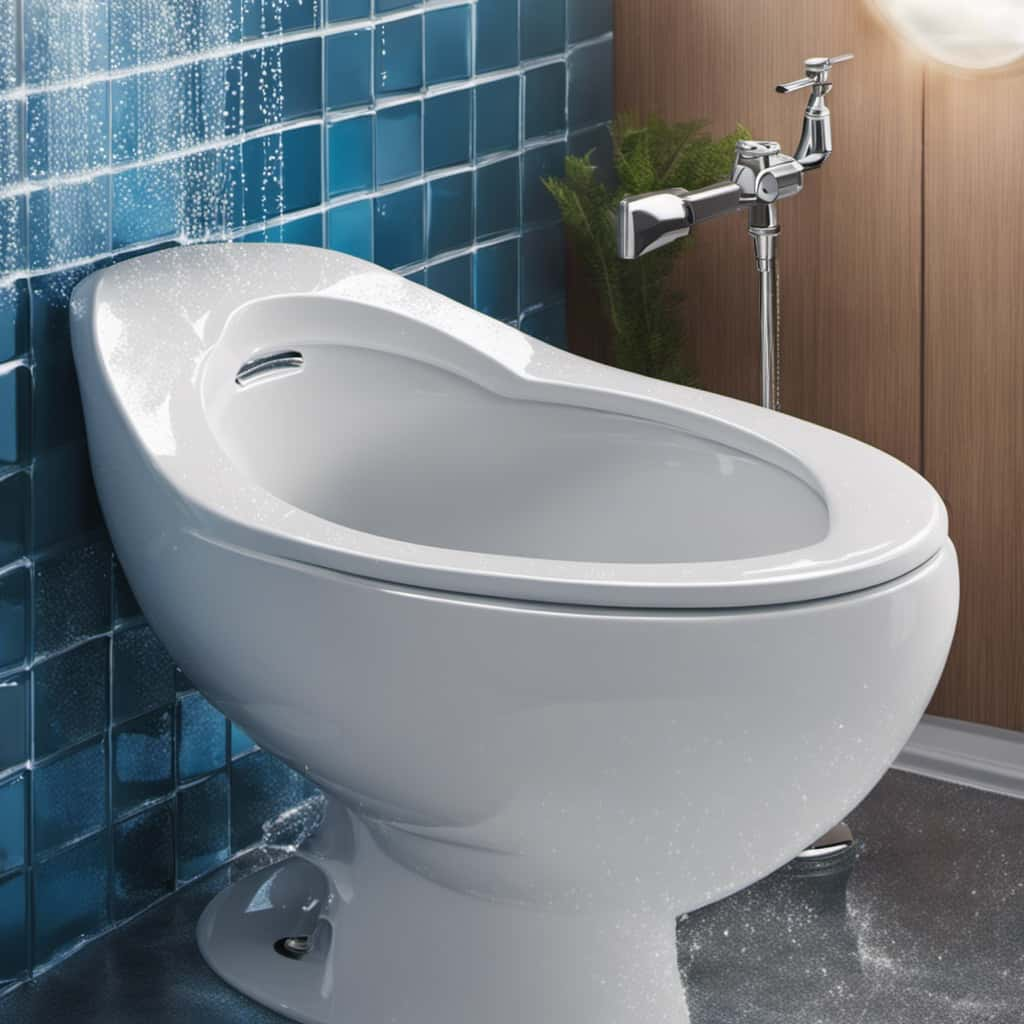
Toilet Clogs and Damage
Toilet clogs and damage caused by flushable wipes have been a significant concern, despite the claims made by manufacturers. When it comes to toilet maintenance, it’s essential to understand the potential risks associated with using flushable wipes.
While these wipes may be marketed as safe to flush, they can still cause serious problems in your plumbing system. One of the most common toilet problems caused by flushable wipes is clogging. These wipes don’t break down and dissolve as easily as toilet paper, leading to blockages in the pipes.
Additionally, the fibers in flushable wipes can accumulate over time, further exacerbating the issue. It’s crucial to address these concerns and ensure proper toilet maintenance to prevent potential damage to your plumbing system.
Now, let’s delve into the impact that flushable wipes have on plumbing systems.
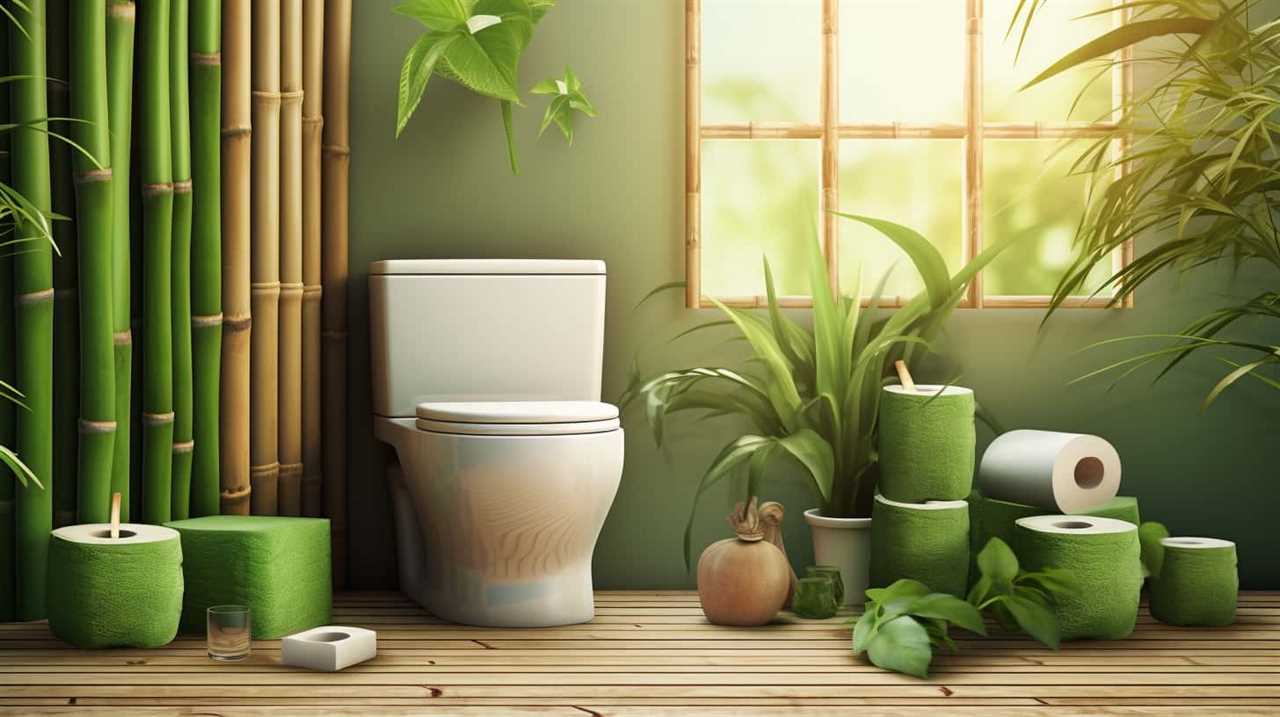
The Impact on Plumbing Systems
One flushable wipe can have a significant impact on our plumbing systems. While flushable wipes are marketed as safe to flush, they can still cause problems in our plumbing. Here are three ways flushable wipes can affect our plumbing systems:
- Clog formation: Flushable wipes don’t break down as easily as toilet paper, which can lead to clogs in our pipes. These clogs can disrupt the flow of wastewater and require costly plumbing repairs to fix.
- Pipe damage: The non-degradable nature of flushable wipes can also cause damage to our plumbing pipes. Over time, the accumulation of wipes can lead to blockages and even burst pipes, resulting in extensive repairs and potential water damage.
- Sewer backups: When flushable wipes accumulate in sewers, they can cause blockages and backups. This can lead to overflowing toilets and unsanitary conditions, requiring professional intervention to resolve.
To prevent these issues, it’s essential to practice proper toilet maintenance and avoid flushing flushable wipes. Regular plumbing inspections and repairs can also help identify and address any potential problems before they escalate.
The Potential Risks of Using Just One Wipe
Using flushable wipes in the toilet can pose potential risks that can lead to plumbing issues and costly repairs.
It’s important to understand the potential dangers associated with using just one wipe. While flushable wipes are designed to break down in water, they may not dissolve as easily as toilet paper. This can result in clogged pipes and blockages in your plumbing system.
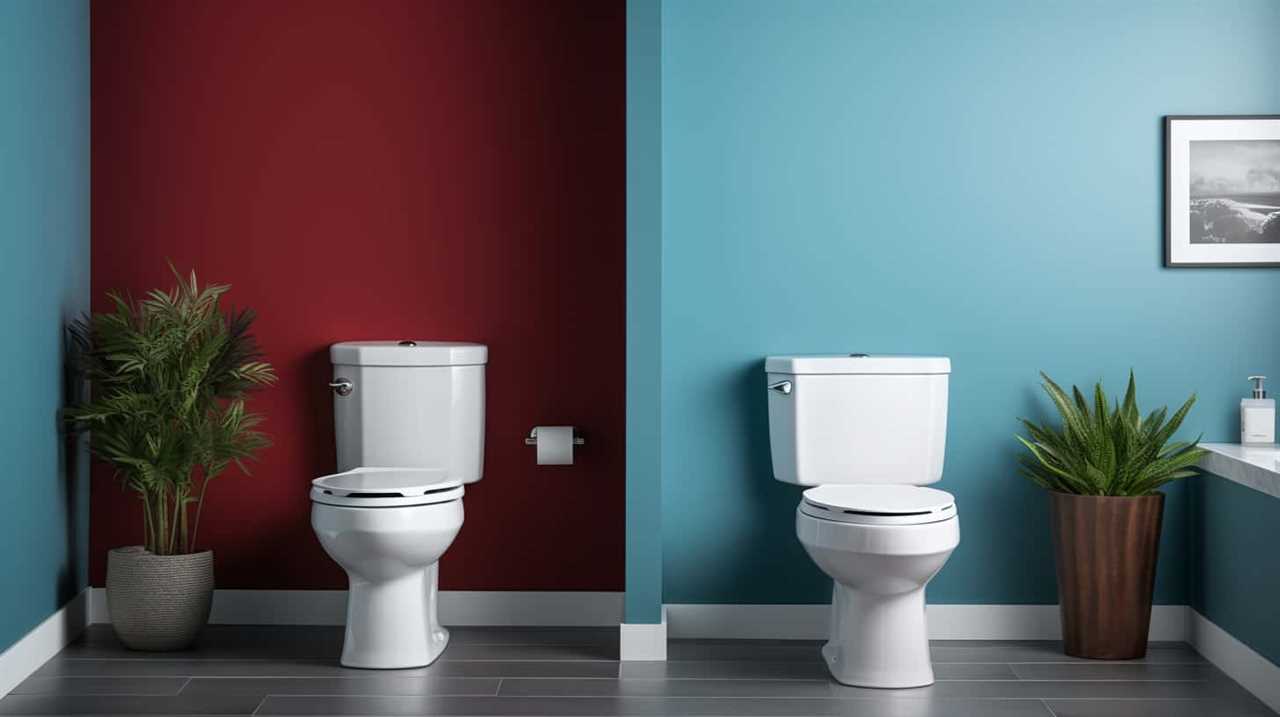
Additionally, using a single wipe may not provide adequate cleaning, leading to the build-up of bacteria and unpleasant odors.
To ensure proper usage, it’s recommended to only flush one wipe at a time and to dispose of additional wipes in the trash. This will help prevent potential plumbing problems and maintain the integrity of your toilet and plumbing system.
Tips for Proper Disposal and Prevention of Clogs
Let’s continue our discussion on the potential risks of using flushable wipes and explore some tips for properly disposing of them and preventing clogs in your plumbing system.
Here are three important tips for proper disposal and prevention of clogs:
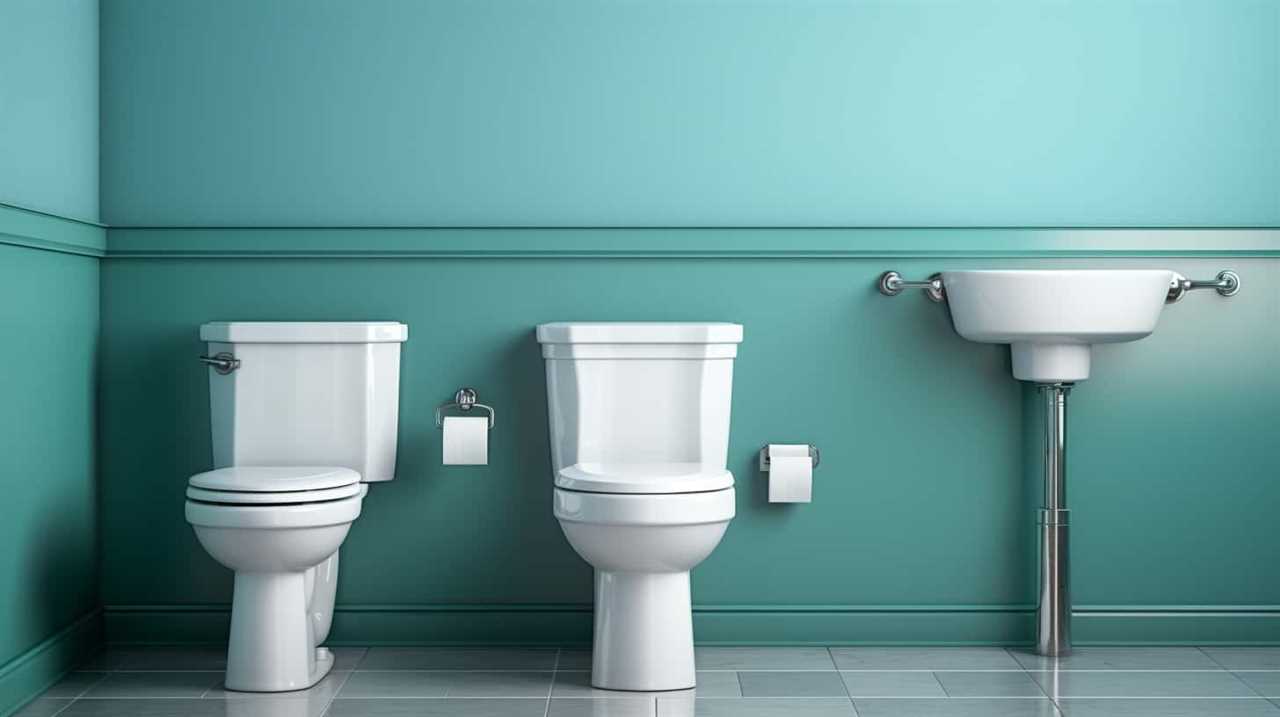
- Do not flush flushable wipes: Despite their name, flushable wipes don’t break down as easily as toilet paper and can cause clogs in your plumbing system. Instead, dispose of them in the trash.
- Use a trash can with a lid: To avoid the temptation of flushing wipes, place a trash can with a lid in your bathroom. This will provide a convenient and hygienic way to dispose of wipes and prevent clogs.
- Educate household members: Make sure everyone in your household understands the importance of proper disposal methods for wipes. Inform them about the potential risks of flushing wipes and encourage them to only flush toilet paper.
Conclusion
After all the research and claims from manufacturers, it turns out that yes, just one flushable wipe can indeed clog a toilet. Despite the term ‘flushable,’ these wipes aren’t as innocent as they seem. They can wreak havoc on plumbing systems, leading to costly repairs and headaches.
So, next time you reach for that flushable wipe, think twice and opt for a more toilet-friendly alternative. Your pipes will thank you.
